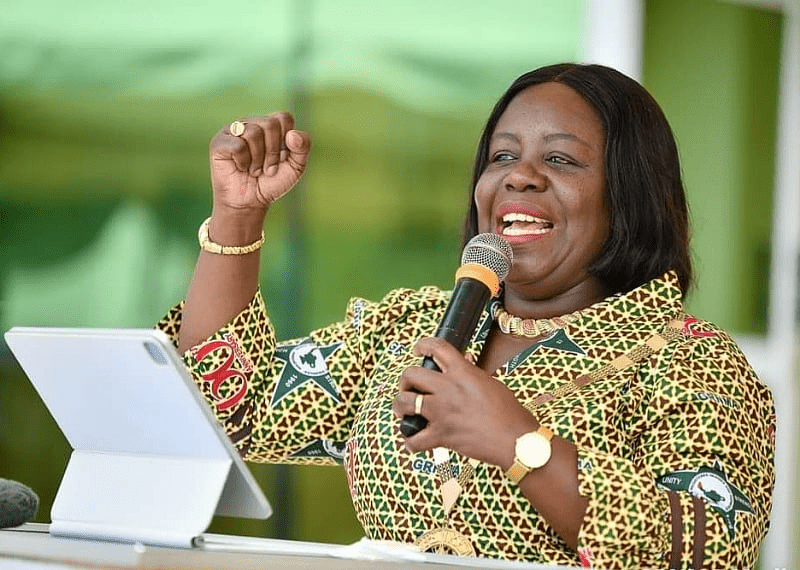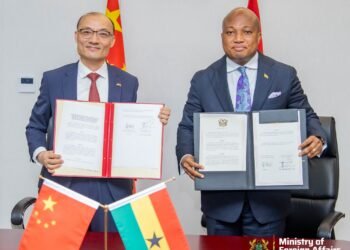Ghana’s healthcare sector is currently facing a major workforce crisis, with a significant number of professionals leaving the country in search of better opportunities abroad. Stakeholders at the recent Ghana Sharing and Learning Event, held under the Global Health Partnership Programme, are urging the government to implement the Rural Incentive Package to help retain health workers in the country.
The event highlighted the growing trend of healthcare worker migration, the reluctance of professionals to work in rural areas due to poor conditions, and the need for immediate action to address these challenges.
Ghana has one of the highest rates of healthcare worker migration in Sub-Saharan Africa, with reports indicating that over 50% of doctors and 24% of nurses trained in the country now work overseas. The Ghana Registered Nurses and Midwives Association (GRNMA) revealed that since the beginning of January 2024 alone, 723 nurses have left the country.
Aside from the migration of professionals abroad, many healthcare workers within the country are reluctant to accept postings to rural areas due to a combination of factors, including inadequate salaries, poor working conditions, and a lack of incentives.
Rural Incentive Package
The Rural Incentive Package was designed to provide attractive benefits to healthcare professionals who accept postings to rural areas. The goal was to improve conditions and retain professionals in underserved regions. However, despite its completion and submission to Parliament, the package has not yet been implemented. The President of the GRNMA, Ms. Perpetual Ofori-Ampofo has raised concerns about the Program while urging the government to respond with the needed urgency to address the plight of rural health workers.
“We came out with a brilliant report with various packages that could be offered as an incentive package to those who accept to work in underserved, deprived, or typical rural areas of Ghana. It’s a general concern. I expect that the partners here will collectively push. Now that we have a new government, it’s crucial that we implement that document because it will go a long way to attract and retain health professionals in these deprived areas.”
Ms. Perpetual Ofori-Ampofo, President of the GRNMA

Meanwhile, the Ministry of Health has placed the program on its action plan for the year, with plans to validate which districts qualify as truly deprived. However, Ms. Ofori-Ampofo questioned the need for a validation, stating;
“We are being told that the Ministry of Health still wants to do some validation of which area qualifies as underserved or rural or deprived. But as far as I’m concerned, during the technical work, we were able to trash out these things.”
Ms. Perpetual Ofori-Ampofo, President of the GRNMA
She further emphasized that it should be easy to determine whether an individual healthcare worker is operating in a deprived area or otherwise.
This concern highlights a potential delay in implementing the package, which could further worsen the healthcare workforce crisis in rural Ghana.
The Role of the Global Health Workforce Program
The event was hosted as part of the Global Health Workforce Program, a major initiative aimed at strengthening Ghana’s health workforce and advancing progress toward universal health coverage.
The program has been making a lot of strides in the health sector. Speaking at the event, Chair of the National Oversight Mechanism, Dr. James Enchi highlighted the need for sustainability of the program.
“We’ve been so happy with the progress made so far. These various projects cut across leadership and governance. The role of government now is ensuring sustainability. These are funded projects, and some of them would need sustainability.”
Dr. James Enchi Chair of the National Oversight Mechanism
This statement underscores the importance of government commitment in ensuring that critical healthcare initiatives do not collapse due to a lack of long-term financial support.
The Ghana Sharing and Learning Event brought to light critical issues affecting the country’s health workforce due to the increasing number of healthcare workers migrating abroad and many others refusing to work in rural areas.
The success of Ghana’s healthcare system and the achievement of universal health coverage depend on attracting and retaining skilled professionals across all regions. As stakeholders continue to push for the implementation of the incentive package, all eyes are on the government to see whether it will take the necessary steps to strengthen the country’s healthcare workforce.




















